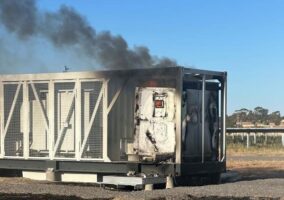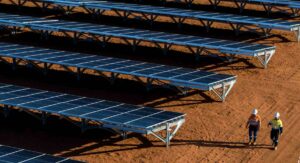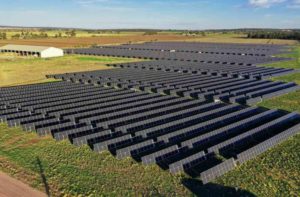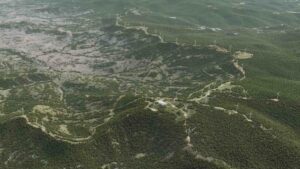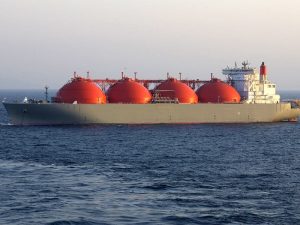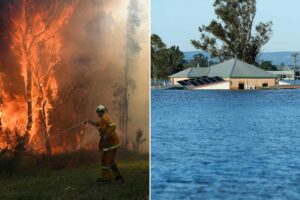The Queensland auditor general has raised concerns that the Palaszczuk government may not be on track to deliver on a promised 50 per cent renewable energy target by 2030, with investment rates lagging behind what is needed to reach the milestone.
In a review of Queensland’s progress towards the target, the auditor general found that the state government was not tracking whether the addition of new wind and solar projects was occurring at sufficient pace.
In 2017, the Palaszczuk government committed to reaching 50 per cent renewables by 2030, although it was described as an “ambition” rather than a formally legislated target.
The government has established several initiatives to help deliver on the goal, including the creation of the government-owned CleanCo, which has directly invested in renewable energy projects, and is putting together the first renewable energy zone.
But in a review published on Thursday, Queensland auditor general Brendan Worrall said if investment in new wind and solar projects continues at their historical rates, Queensland would fall short of its 50 per cent renewables target.
While the auditor general noted there exists a significant pipeline of potential new projects in the works, there was considerable uncertainty around which projects would progress to construction and whether they would be operational in time to contribute to the 2030 target.
“If projects continue to become operational at this historic rate, there may not be enough renewable generation in Queensland by 2030 to meet the target,” the auditor general’s report says.
“However, the average size of renewable projects reaching financial close has been increasing. Converting larger projects will bring Queensland closer to the target. Other factors, such as growth in rooftop solar and green hydrogen generation, could also assist Queensland to achieve the target.”
The auditor general said he is confident Queensland will reach at least 35 per cent renewable energy market share by 2025, but said it wasn’t possible to accurately forecast what levels of investment may be maintained beyond 2025.
“We recommend the Department of Energy and Public Works conducts an interim review by 2025 to formally assess its progress towards the target and to consider further actions to support its achievement of the target,” the auditor general said.
“These could include additional investment on network infrastructure, increased support for renewable generators or other actions to address external factors.”
Exacerbating the challenge, the auditor general found that the Queensland government had been overestimating the share of renewables in the state’s grid, having overlooked some sources of electricity generation in the state.
The Queensland government had previously stated that the state had reached 20 per cent renewables in the 2020-21 budget, but when generation from a number of diesel generators and other small-scale operations were taken into account, the auditor general found that the market share was just 19 per cent.
In a response to the auditor general, Queensland energy minister Mick de Brenni acknowledged that “more work was required” to meet the government’s 50 per cent target and expects to announce further details on how the target will be achieved in the future.
“Based on current performance, Queensland is progressing well to meet its 50 per cent QRET, but more work if required, and it is expected the Energy Plan will chart a course to ensure the achievement of the target concurrently with cheaper, cleaner electricity and more jobs in more industries in Queensland,” de Brenni told the auditor general.
De Brenni attributed the distribution caused by the Covid-19 pandemic for slower progress towards meeting the renewable energy target but was confident that the state would get back on track.
“The government’s commitments have established the direction and focus for the Queensland market and laid the foundations for the Queensland energy sector ahead of the arrival of Covid-19, which led many Queenslanders and local governments to re-focus their attention on efforts to drive economic recovery and restore Queensland’s positive social footing,” de Brenni said.
“Since 2020, however, Queensland had continued to facilitate significant growth in renewables with new policy setting and programs.”
The Palaszczuk government recently launched a consultation process to seek feedback on its first proposed renewable energy zones, which it expects to underpin investment in 3,300MW of new renewable energy projects in its first phase.
De Brenni added that he expected that Queensland would meet its 2030 target.
“Whilst the audit office report recognises the detailed work being undertaken to develop the Queensland Energy Plan to meet our targets, we are already acting on all its recommendations,” de Brenni told RenewEconomy.
“We are on track to meet the target with our pipeline of renewable projects under way and committed and our Energy Plan next year will provide the necessary clarity about how we will further chart our course to being a renewable energy superpower.”

